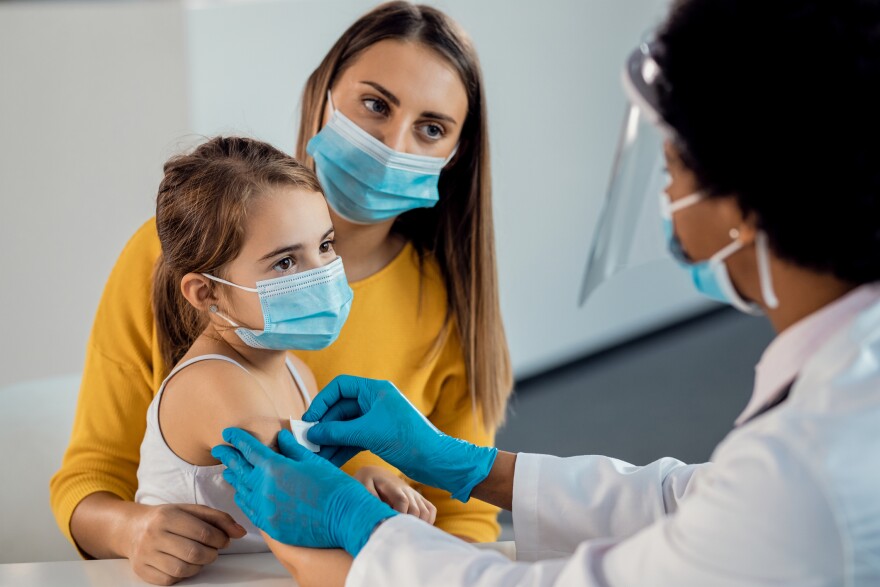Wednesday evening, Nov. 3, 2021
State
Utah receives 50,000 COVID vaccine doses for kids
The COVID-19 vaccine for kids ages 5 to 11 is now available in Utah. Officials with the state’s health department said Utah received its first 50,000 doses Tuesday. Two more waves will come by the end of this week. Michelle Hofmann, the department’s deputy director, said local health departments will be the easiest place to get vaccinated initially. People who want to get it through their family doctors should call ahead first. Officials said the top priority is to get the vaccine out to those who want it first. The next step will be to work with families who are hesitant or have questions about it. — Jon Reed
Ranked-choice voting runs smoothly on Election Day
Utah’s November municipal election was a big experiment in ranked-choice voting. About two dozen cities tried it Tuesday and county election officials said the process went smoothly. In Salt Lake, Utah and Cache counties, tallying the ranked-choice races took about 45 minutes to an hour longer. Utah County Clerk/Auditor Josh Daniels said there wasn’t any significant difference between voter turnout in cities using ranked-choice voting and those that weren’t. Read the full story.— Sonja Hutson
Northern Utah
Utah State University sending out more than $27 million in COVID relief funding
Utah State University is rolling out its second round of relief grants to students. USU said it has a little more than $27 million in federal COVID funding to distribute to people enrolled for the fall semester. The money can be used on things like food, housing, transportation or child care. About 10,000 students are automatically qualified based on their financial needs identified through FAFSA. Students who don’t receive money initially can still apply by Nov.15. But they must demonstrate “significant unexpected expenses.” — Ross Terrell
Southern Utah
UDOH opens new monoclonal antibody treatment center in St. George
The Utah Department of Health is opening a new COVID-19 monoclonal antibody treatment center in St. George. The treatment is an infusion of lab-created antibodies. It’s reserved for people at high risk for severe COVID complications. It can be given after they test positive for the virus and show symptoms. The new St. George center will be up and running by the end of this week and will be open weekdays from 8 a.m. to 5 p.m. Health officials said the best way to protect against severe COVID is still to get vaccinated. — Caroline Ballard
Region/Nation
Federal government slacking in dealing with MMIW crisis
A new report from the Government Accountability Office said the federal government isn’t doing enough to tackle the crisis of missing and murdered Indigenous women. Advocates have long argued that Indigenous women go missing or are murdered at much higher rates than in other demographics. In recent years, Congress passed two laws addressing the issue. But the new GAO report shows that the Justice and Interior Departments are missing important milestones set by the legislation. For example, the agencies failed to create a joint commission to reduce violent crime against Native americans. While the Justice Department has begun analyzing data on missing and murdered Indigenous people, it doesn’t have a plan yet to continue after this month. — Nate Hegyi, Mountain West News Bureau


